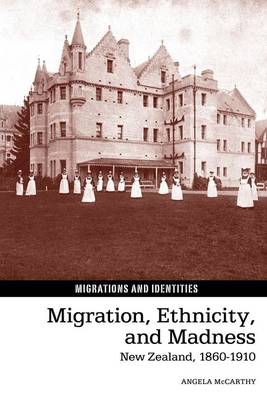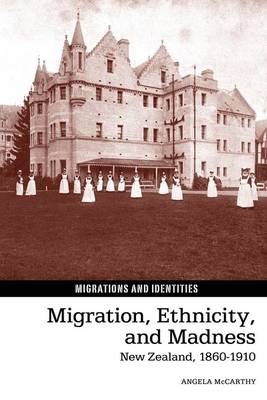
- Retrait gratuit dans votre magasin Club
- 7.000.000 titres dans notre catalogue
- Payer en toute sécurité
- Toujours un magasin près de chez vous
- Retrait gratuit dans votre magasin Club
- 7.000.0000 titres dans notre catalogue
- Payer en toute sécurité
- Toujours un magasin près de chez vous
Description
This book provides a social, cultural, and political history of migration, ethnicity, and madness in New Zealand between 1860 and 1910. Its key aim is to analyse the ways that patients, families, asylum officials, and immigration authorities engaged with the ethnic backgrounds and migration histories and pathways of asylum patients and why. Exploring such issues enables us to appreciate the difficulties that some migrants experienced in their relocation abroad, hardships that are often elided in studies of migration that focus on successful migrant settlement.
Drawing upon lunatic asylum records (including patient casebooks and committal forms), immigration files, surgeon superintendents reports, asylum inspector reports, medical journals, and legislation, the book highlights the importance of examining antecedent experiences, the migration process itself, and settlement in the new land as factors that contributed to admission to an asylum. The study also raises broader themes beyond the asylum of discrimination, exclusion, segregation, and marginalisation, issues that are as evident in society today as in the past.
Spécifications
Parties prenantes
- Auteur(s) :
- Editeur:
Contenu
- Nombre de pages :
- 256
- Langue:
- Anglais
- Collection :
- Tome:
- n° 5
Caractéristiques
- EAN:
- 9781781381625
- Date de parution :
- 02-04-15
- Format:
- Livre relié
- Format numérique:
- Genaaid
- Dimensions :
- 157 mm x 236 mm
- Poids :
- 399 g

Les avis
Nous publions uniquement les avis qui respectent les conditions requises. Consultez nos conditions pour les avis.






